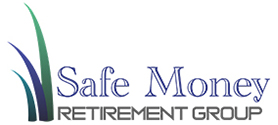Ben Kunes
Safe Money Retirement Group
Why you should consider a Solo 401k if you are Self Employed
If you own your own business, you are undoubtedly aware that small-business retirement plans, like SEP and Keogh, can sometimes leave much to be desired.
The good news is that the Solo 401(K) is making an economic comeback in a big way and provides enterprising entrepreneurs like you with a wider variety of retirement saving options.Solo 401(K) Options: New and ImprovedEmployees at Enron thought that they were smart by investing much of their 401(k) earnings back into the company, but they were in for a shock when shares suddenly plummeted down to less than a dollar each. Remember, your 401(k) is your nest egg for the future and should be invested carefully and wisely.How Much Should You Invest in Your Company?If you purchase your 401(k) plan through your insurance company, it may be packaged as an annuity, mainly if you are a teacher, professor, or employed by a non-profit. These plans are more expensive than the average 401k plan since the insurance company typically will require you to pay an additional fee and the expense ratio you are already required to pay.Although most insurance companies would not be able to compete with other 401k providers if they did not charge these fees, critics point out that the extra charges are often covertly taken out of your total investment return. The only way to know if you are being charged, in most cases, is to review your investment prospectus carefully.Very Few Companies Offer the Roth IRA 401(k) Option.Why? The reasons vary by company but are more than likely because Roth IRAs were not originally meant to be permanent options for employees. With a Roth IRA, as opposed to a traditional 401k investment plan, you pay the taxes on future withdrawals before you make them, allowing you to withdraw on a tax-free basis in the future.If your company does not offer the Roth IRA option, and you would like them to do so, don't hesitate to approach the benefits department to ask why and how such an alternative might be implemented at a later date. Remember-it's your money and your future on the line.Value Funds and Company Stock Options may Not be Necessarily the Best Choice.It may seem like a wise and loyal investment to put a good portion of your 401k in company stock or value funds, but this is not always the case. Younger employees may be tempted to invest heavily in these areas, and most financial planners agree that this is a decision they will come to regret later.Company stock investing can lead to disaster if your company goes belly-up, and a large proportion of your 401k is invested in the stock. Likewise, value funds, although they do protect your savings, generate much less of a return than stock and bond funds generally do and should be invested in with careful consideration.Investing in Your 401(k): Get Informed, Stay Informed.Investment choices made today can dramatically shape your financial outlook in the future. Be sure to educate yourself in all aspects and options of your 401(k) plan, and meet with your financial planner regularly to determine the best course of investment action for you.
Ben Kunes
Safe Money Retirement Group
6657 Winding Creek Way
St. Louis, Missouri 63129
ben.kunes@retirevillage.com
(314) 740-6278

Looking For Answers?
Download our Safe Money Guide and learn more about safe retirement options that can help you achieve your retirement goals safely - FREE!


